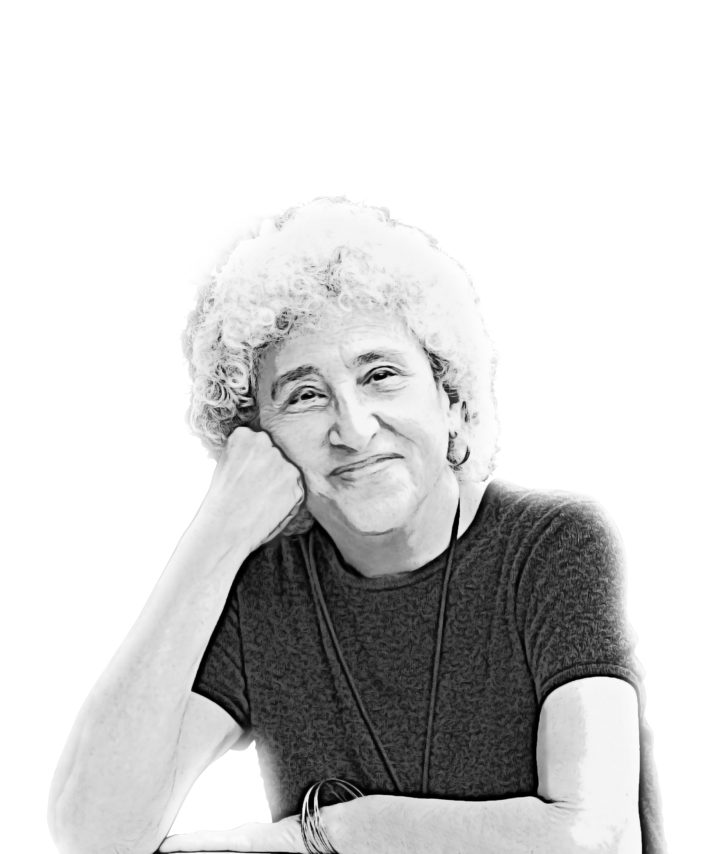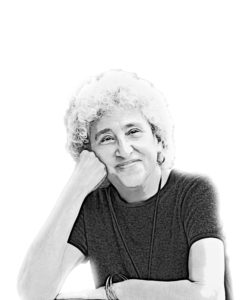

This is part of our special feature on Food, Food Systems, and Agriculture.
In the world of foodies, Marion Nestle needs no introduction. For decades she has devoted her time and mind to bringing awareness to food issues, from health, nutrition, obesity and hunger in America to unequal access, environmental impact of food production and consumption, the role played by food companies and marketing in shaping diets and influencing food safety, and this not only for humans but also for the pets we feed. She has been instrumental in putting food studies on the academic map in the United States, notably with the development of a program at New York University. As a food policy and nutrition scholar with a dual training in molecular biology and health policy her authority on approaches to food systems in the US is uncontested. She is a prime example that studying and understanding food systems should be an interdisciplinary effort. Michael Pollan, another giant of the healthy food movement in the US, ranked her second only behind First Lady Michelle Obama on his list of people most able to guide well-needed reform in the American food system. She has been a prolific writer and her books are among students’ favorites in classrooms across the US. I first engaged with her scholarship in a political ecology seminar and caught up with her for this interview as she was setting out to fly to yet another exciting foodscape and international destination as she regularly lectures around the world. She shares with EuropeNow why she thinks that food is such an important topic and how food studies must be envisaged in conjunction with other complementary fields in an ecosystemic and global way to face critical social, political and environmental challenges today and tomorrow.
—Hélène Ducros for EuropeNow
EuropeNow You are an authority in “food studies.” How would you define this field?
Marion Nestle In my department at New York University (NYU), we like to define food studies as the use of food as a lens through which to examine some of the most important issues of society—for example, hunger and malnutrition, obesity and its consequences, socioeconomic inequality, immigration and its consequences, and everything about the environment from agricultural runoff to climate change.
EuropeNow In what context did food studies emerge in the US? What were some triggers?
Marion Nestle The chef Julia Child had been pushing colleges to teach gastronomy and started a program at Boston University in the early 1990s. I did not think that “gastronomy” worked for academic institutions and when the opportunity arose in 1996 to create a new program, my NYU department called it “food studies” in line with many other programs using “studies” in the title. This term refers to research on the topic—social studies, gender studies, French studies, etc. I had been spending time with chefs and food writers at meetings sponsored by Oldways Preservation and Exchange Trust, a group in Boston interested in food issues, and it was clear to me that there was great interest in studying more deeply about the role of food in society.
EuropeNow Why do you think it has taken off like it did?
Marion Nestle Everyone eats! People have always been concerned about what they put in their bodies.
EuropeNow How did you become interested and how has your approach evolved over the years?
Marion Nestle I’ve always loved to eat and was lucky enough to be given the opportunity to create the academic program I would have studied had it existed at the time I went to university. Our NYU undergraduate, masters, and doctoral programs in food studies started out focusing on food and culture but eventually expanded to emphasize food systems as well. Food systems adds agricultural production to the mix.
EuropeNow You are Professor of Nutrition, Food Studies, and Public Health. Could you explain to our readers how those three fields intersect and why it is important that we look at all three together?
Marion Nestle To me, the three areas are inextricably related. Food studies is about how food is produced and consumed in various societies and its political, economic, and symbolic meanings. Food is an enormous business and food companies want to sell as much food as they can, regardless of its health consequences (hence: politics). Food has religious and cultural significance and matters deeply to people. Food provides nutrients we need to live, reproduce, and flourish—health, in other words. We can’t really understand why we eat the way we do unless we understand how food is produced and what it does in our bodies.
EuropeNow In your mind, what are some of the most interesting questions to investigate around food today?
Marion Nestle The most intellectually challenging questions in nutrition research are how to determine what people eat and the effects of diet on health. Humans make terrible experimental animals and we can’t be locked up for decades while being fed defined diets. Research has to be observational rather than controlled, leading to much uncertainty.
EuropeNow What would be the one issue around food that you feel is the most crucial for our time?
Marion Nestle The most crucial issue? Clearly, it’s how to deal with social and economic inequality so as to ensure that everyone has access to a healthy diet. Dealing with this takes more than study; it takes rethinking the kind of societies we want to have.
EuropeNow In your experience, are there differences between food studies as they developed in the US and as they developed in Europe or other places in the world?
Marion Nestle Most American universities now teach courses about food and society in one form or another. Slow Food started the University of Gastronomic Sciences in Italy. I taught there in February. The students in Italy came from all over the world, all of them interested in learning more about the deeper meanings of food in society. They were fun to teach.
EuropeNow Could you share some of your favorite teaching moments in food studies and some of the projects/assignments that your students seem to particularly appreciate?
Marion Nestle My own teaching deals with food politics, policy, and advocacy. Students generally think of food as a matter of personal choice; they are surprised to learn about its political dimensions. Many of our students go on to careers in advocacy or government organizations, trying to improve access to food or to create an environment conducive to food choices that are healthier for people and the planet.
EuropeNow What would be your advice for students who want to get into that field of study/research?
Marion Nestle I advise students always to study what seems most interesting and exciting to them. I came into food studies with a doctorate in molecular biology. I don’t think the area of study matters nearly as much as an interest in deep exploration of the role of food in today’s world.
EuropeNow Can you tell us about your latest research?
Marion Nestle My forthcoming book is Unsavory Truth: How Food Companies Skew the Science of What We Eat. It will be published by Basic Books at the end of October this year. It’s about how food companies fund nutrition research and practice in an effort to make their products appear harmless, healthy, or as superfoods—foods marketing as having especially nutritious characteristics. By that definition, all fruits and vegetables are superfoods and we would all be healthier eating more of them.
EuropeNow Where do you think food studies is going next? What might be some opportunities not to miss but also some challenges for this field of research?
Marion Nestle From my standpoint, the most important food problems that need to be addressed are world hunger, obesity and its health consequences, and the effects of food production and consumption on our environment. These are huge challenges, worth all the attention they can possibly get. We all need to be supporting international agencies working on these problems and domestic efforts to reduce income and food inequalities.
Marion Nestle is Paulette Goddard Professor of Nutrition, Food Studies, and Public Health, emerita, at New York University, in the department she chaired from 1988-2003 and from which she retired in September 2017. She is also Visiting Professor of Nutritional Sciences at Cornell and holds honorary degrees from Transylvania University in Kentucky and the Macaulay Honors College of the City University of New York. She earned a Ph.D. in molecular biology and an M.P.H. in public health nutrition from the University of California, Berkeley. Her research and writing examine scientific and socioeconomic influences on food choice, obesity, and food safety, emphasizing the role of food marketing. She is the author of six prize-winning books: Food Politics: How the Food Industry Influences Nutrition and Health; Safe Food: The Politics of Food Safety; What to Eat; Why Calories Count: From Science to Politics (with Dr. Malden Nesheim); Eat, Drink Vote: An Illustrated Guide to Food Politics; and Soda Politics: Taking on Big Soda (and Winning). She also has written two books about pet food, Pet Food Politics: The Chihuahua in the Coal Mine and Feed Your Pet Right (also with Dr. Nesheim).
Hélène B. Ducros is Chair of the Editorial Committee at EuropeNow. She earned a law degree and Ph.D. in Geography from the University of North Carolina, Chapel Hill. Her latest publication in the Journal of Place Management and Development examines soup as a medium for reinvented commensality in rural France.
Published on September 5, 2018




